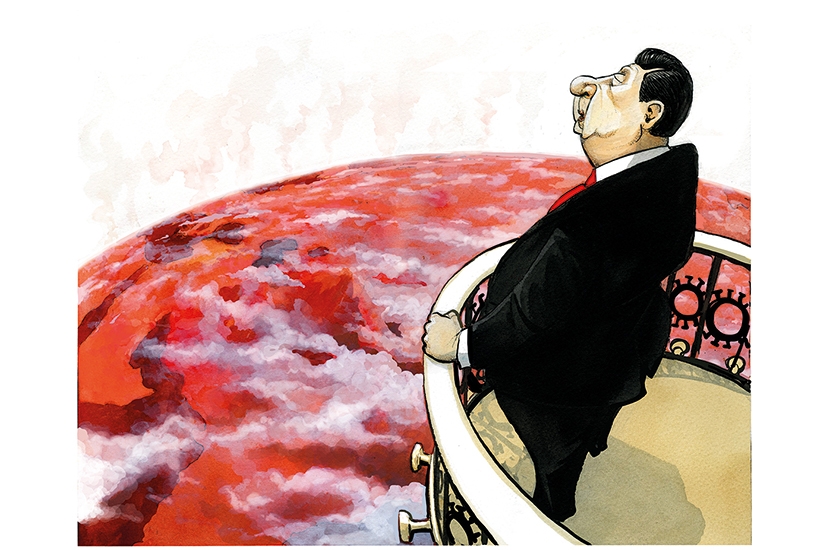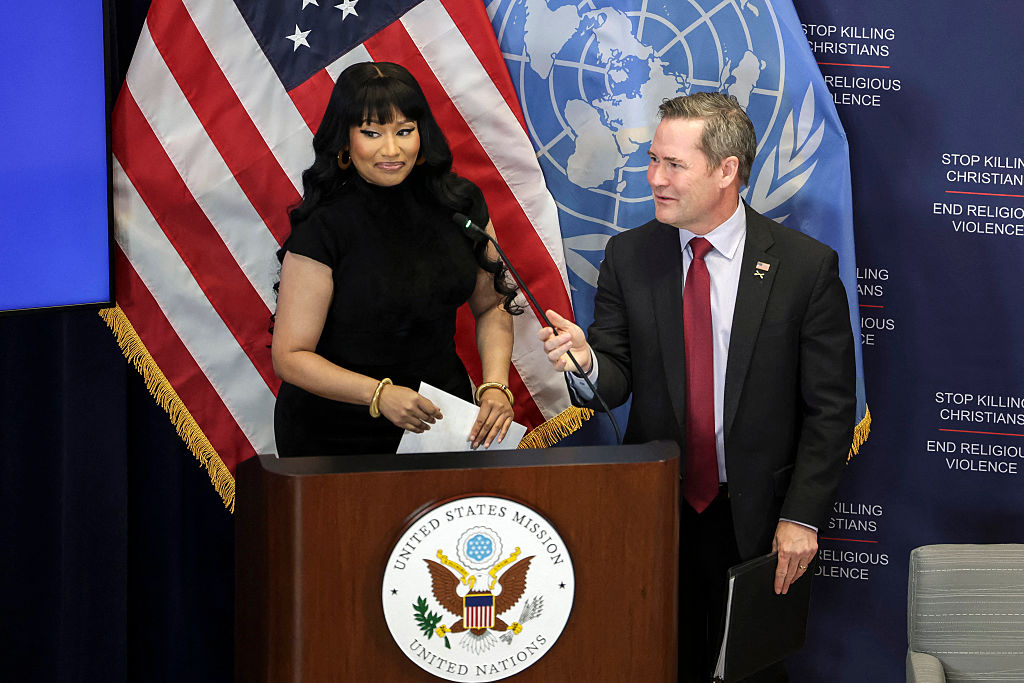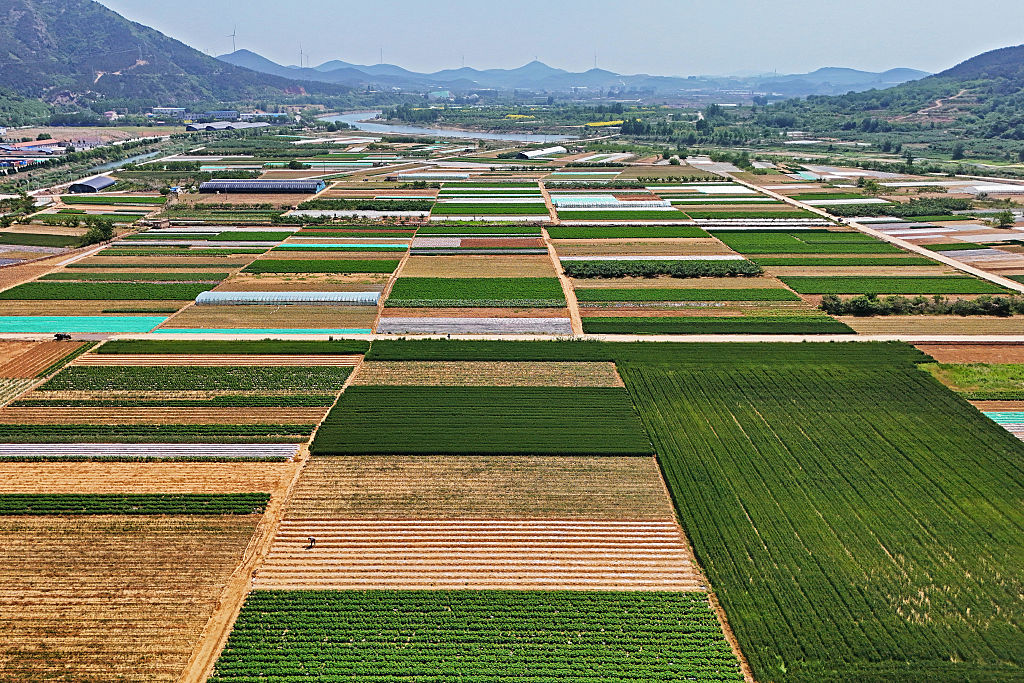It was one of those forgettably historic moments at the United Nations. The year was 2015, the UN’s 70th anniversary, and China’s President Xi Jinping was in New York, speaking in person to the UN General Assembly. In festive spirit, Xi announced that China would set up a $1 billion trust fund to be dispersed over ten years to ‘support the UN’s work’ and ‘contribute more to world peace and development’.
So began the Peace and Development Trust Fund, one of China’s more insidious projects to co-opt the UN, its logo and its global networks. On Xi’s watch, China has become the second-largest contributor to the UN General Assembly and Peace-keeping budgets, secured the fawning allegiance of the World Health Organization and taken charge of four other specialized UN agencies.
But that trust fund, one of Xi’s pet projects, has taken on a quietly invasive role that needs a major public airing. China’s Peace and Development fund bypasses the common pots of UN funding and channels millions of dollars every year directly from Beijing to the executive office of the UN Secretary-General.
Not that the $1 billion promised by Xi ever fully materialized. By the time the deal was signed in 2016, China had arranged a big discount for itself, downsizing the gift to $200 million over 10 years, or $20 million a year. It was still gravy, and the then Secretary-General Ban Ki-moon was grateful. His spokesman described China’s new fund as a ‘demonstration of the strong commitment of the government and people of China to the goals and activities of the UN’.
Actually, it’s worked the other way around: China’s Peace and Development fund has translated into a stronger UN commitment to the goals and activities of China. A priority of this fund is UN promotion of Xi’s Belt and Road Initiative, with its predatory lending practices, strong-arm diplomacy and trade practices, and potential military extension of China’s reach.
China’s direct cash infusion to the secretariat, totaling $20 million a year, is split into two subfunds. One funnels $10 million annually to the executive office of the Secretary-General, to help him promote ‘Peace and Security’. The other subfund pours $10 million a year, earmarked for ‘Sustainable Development’, to a satrapy within the secretariat, the Department of Economic and Social Affairs (DESA), which since 2007, at the pleasure of the Secretary-General, has been run by — you guessed it — China.
This Peace and Development lucre is doled out for dozens of projects each year, blessed by Beijing, approved by Secretary-General António Guterres and adorned with the UN’s baby-blue label. In approving these projects, Guterres is advised by a five-member steering committee, chaired by his Brazilian chef de cabinet. The other four committee members are all from China: one senior official from China’s foreign ministry, another from China’s finance ministry, plus China’s ambassador to the UN and the UN Under-Secretary-General in charge of DESA, previously China’s ambassador to the UN in Geneva, Liu Zhenmin. Within DESA, the sustainable development subfund is managed by another official from — you guessed it again — China.
Much of this operation is intriguingly opaque. That creates a daunting task for anyone trying to rule out notions about China’s Communist regime lavishing slush funds on the UN secretariat. There have long been many trust funds for many purposes at the UN, some single-donor, some multi-donor. They can be approved either by the General Assembly or the Secretary-General. But this is a rather special case in which former Secretary-General Ban approved, and Guterres continues to legitimize, a flow of many millions every year from the world’s leading tyranny to his own office.
The UN has kept secret the full text of this trust-fund agreement with China’s government. Most of the project descriptions that the UN releases to the public are brief and generic, consisting of a few sentences and a lone figure for the total dollar amount. It has been almost a year since the UN last released updates on new project approvals. According to the Secretary-General’s press office, for projects given a green light in 2020, there will be no information available until 2021.
[special_offer]
From what can be gleaned, it appears the Secretary-General’s Peace and Security subfund goes mainly to security-related projects in Africa, where China has become both a major investor and a big contributor of troops to UN peacekeeping missions. Sounds reasonable, except for the nagging question of why, with a UN peacekeeping budget of some $6.5 billion a year funded through the usual multilateral channels, China feels a need to give $10 million a year to the Secretary-General for more of the same. For instance, $1.1 million for ‘strengthening peacekeeping capacity with a focus on Africa’. Who and what exactly is the Secretary-General, with his Chinese pin money, strengthening at the margin?
As for the development subfund, dispensing $10 million a year to the Chinese-run DESA, all roads lead to the Belt and Road. It’s written right into the subfund’s guidelines (‘Strengthen national capacity of developing countries along the Belt and Road region…’). Under the UN label, millions have been spent on ‘Jointly Building the Belt and Road’ and ‘Promoting Sustainable Investments Along the Belt and Road’. Then there’s the $3 million project for training ‘up to 500 senior civil servants (Permanent Secretary or Director-General level)’ to better mesh with the strategic planning of the China-UN development agenda.
A UN internal audit of the Peace and Development Trust Fund, dated December 18, 2019, found that: ‘Controls relating to governance and project management need to be strengthened to increase the impact of the Trust Fund’s activities.’ But for all the dissatisfaction of the UN auditors, Xi seems happy. In September the UN held a virtual celebration of its 75th anniversary. Speaking from Beijing, Xi announced to the General Assembly that ‘China will extend the Peace and Development Trust Fund between the UN and China for five years after it expires in 2025’. Whatever’s going on in there, he figures he’s getting his money’s worth.

























